





Salad
Useful properties of lettuce leaves
Salad belongs to the annual early plants which are widely cultivated in many countries. Contain more than one thousand kinds of this garden culture which come from crossing of various grades of salad. Conditionally they can be divided into four main types: headed, sheet, asparagus and Romain.

In spite of the fact that the homeland of salad is unknown, there is a set of the historical sources indicating that this culture was known and was widely used in the ancient time by Romans, Greeks and Egyptians, and in the European countries salad began to cultivate since the sixteenth century.
Thanks to the useful properties lettuce leaves are considered as the best addition to meat, potato and fish dishes. They contain a large amount of the folic acid promoting regulation of a metabolism, and also exerting impact on work of nervous and hemopoietic systems. Also they are a fine source of vitamin A and S. Besides, lettuce leaves have slight diuretic, antibechic, sedative and expectorant properties.
Lettuce leaves contain a large number of microelements, necessary for an organism, among which there are a zinc and copper, manganese and cobalt, titanium and molybdenum, iodine and boron. Also are a part of salad:
- Calcium – to 15%;
- Potassium – to 38%;
- Phosphorus – to 9%;
- Iron and magnesium – to 5%;
- Silicon – to 8%.
Salad and the sulfur which is its chemical composition which lack of an organism can lead to development of various nervous diseases is appreciated. Together with silicon sulfur contributes to normalization of growth of hair, and also influences a condition of sinews and skin.
The sulfate, nitrate and muriatic salts of potassium which are contained in lettuce leaves are useful to work of a pancreas, a liver, kidneys and circulatory and vascular system.
The magnesium which is contained in lettuce leaves influences a brain, muscular tissue and nerve fibrils. Organic salts of magnesium promote cellular construction of pulmonary fabrics and maintenance of normal blood circulation.
Scientists noted advantage of lettuce leaves for children, and also for elderly people. Besides, this plant is recommended for those who lead a sedentary life and at a disease of a diabetes mellitus.
Caloric content of lettuce leaves low also varies from 10 to 27 kcal depending on a grade. Thanks to it lettuce leaves are recommended to be used as a part of various diets.
Use of lettuce leaves
Lettuce leaves exert beneficial effect on a lipometabolism and promote decrease in level of cholesterol in blood that reduces risk of development of such diseases as a hypertension, atherosclerosis and obesity. Lettuce leaves improve digestion, and also affect soothingly a nervous system as possess easy somnolent action.
Besides, the advantage of lettuce leaves for nursing mothers is noted – leaves and water infusion from the crushed seeds of a plant promote increase in production of milk.
The fresh crushed lettuce leaves infusion in traditional medicine is appointed at chronic gastritis, the increased emotional excitability, sleeplessness, a hypertension, a scurvy, heart troubles and diseases of a liver.
Some grades of salad, for example, a garden cress, are rich with iodine and their leaves can be used as a lotion at treatment of a thyroid gland. The regular use of leaves of a garden cress thanks to the high content of beta carotene and Luteinum reduces probability of development of such eye diseases as a cataract and an age makulodistrofiya.
Useful properties of lettuce leaves use in cosmetology for preparation of various masks which promote rejuvenation of cells of face skin. Also at sunblisters of the place of defeat it is recommended to wipe with juice from fresh lettuce leaves.
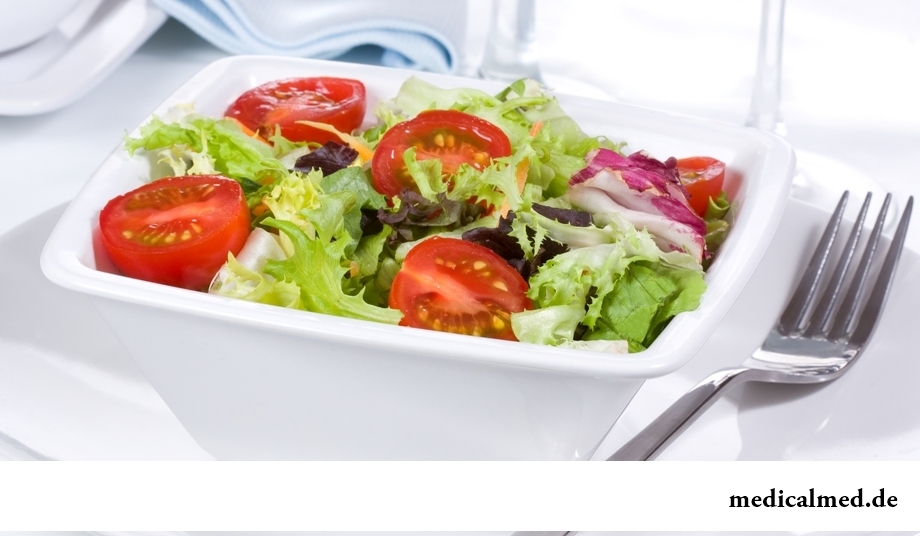
Contraindications
Despite of the low caloric content of lettuce leaves and useful properties of this plant, there is a number of contraindications for its consumption. So, it is contraindicated to eat any kinds of salad in large numbers at:
- Peptic ulcer of a stomach and duodenum;
- To gout;
- Aggravation of a chronic duodenitis;
- Urolithiasis (at oxalic, uratny and phosphatic stones);
- Acute diseases of intestines with the expressed digestion disturbances.
According to opinion of many scientists, vitamin complexes are almost useless for the person.

Not without reason doctors say that 90% of diseases begin or develop because of misoperation of intestines. Disturbance of its functions связ...
Section: Articles about health
Small appetite at the child – the complaint which pediatricians should hear practically from each mother. Most often it is carried to the category of children's whims, however the refusal of food in certain cases can be to alarming symptoms therefore it cannot be ignored....
Section: Articles about health
Dietary supplements (dietary supplements) for the last decades were so thoroughly included into our life that, apparently, it is already impossible to find the person who at least once did not try them. At the same time, most of our compatriots have a vague idea of what dietary supplements as they affect a human body consist of and what differ from the real medicines in. Let's try to understand these questions, and at the same time and to understand, such additives are how necessary for us....
Section: Articles about health
Olive oil – the product capable to make a powerful contribution to health of the person if it includes it in the diet. Rich vitamin...
Section: Articles about health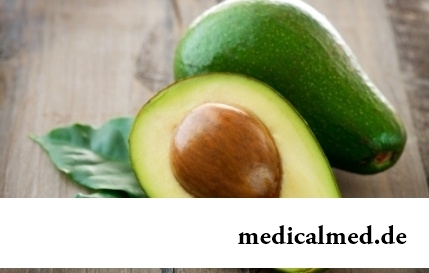
Life does not indulge the modern woman special emotional comfort and carelessness. The fatigue, troubles at work, misunderstanding in a family and various illnesses immediately affect a condition of hair and skin. And to look safe and attractive so хоч...
Section: Articles about health
Proofs of efficiency of Mildronate at treatment of coronary heart disease with stenocardia can be found in many publications of the end of the twentieth century. Researches were conducted since 1984, including placebo - controlled effects. In total clinical tests of Mildronate were carried out for more than thirty years....
Section: Articles about health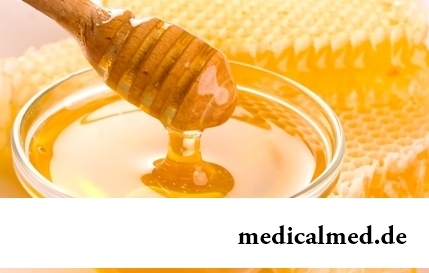
About 20% of the population of our planet have a hypertension (permanent increase in arterial pressure). This disease negatively narrations...
Section: Articles about health
Good appetite was always considered as a sign of good health. The correct operation of the mechanism which is responsible for the need for nutrients and receiving pleasure from process of its satisfaction demonstrates that the organism functions without special from...
Section: Articles about health
The Genetically Modified Organisms (GMO) are plants or animals (as a rule, agricultural) to whose genotype purposeful changes were made. Opposition of supporters and opponents of inclusion of such organisms in foodstuff always was very acute. Not only scientists and dietitians, but also a large number of the people who are not specialists in this question are involved in active disputes today....
Section: Articles about health
More than a half of the married couples which faced prostatitis – leave. The new broadcast "Female View of Prostatitis" will help to learn...
Section: Articles about health
Beauty shop – the place which is associated only with positive emotions: joy, pleasure, relaxation. However visit of salon where work with biological material of clients, not always harmlessly is conducted. Today it is known Bol...
Section: Articles about health
For the person who daily since morning gathers for work it is very important to wake up vigorous and ready by day of work. Actually, each of us experiences difficulties with this, at first sight, simple business from time to time. After night rest exert impact on a condition of an organism the weather which collected for several days fatigue, household and office problems, quality of a dream and many other factors....
Section: Articles about health
For the city dweller the fitness is the most convenient sport. It is enough to acquire the subscription to the gym to receive to a toast...
Section: Articles about health
Many parents of children at the age of 2-4 years face excessively whimsical behavior of the child. The kid exhausts constant crying and whims not only the parents, but also himself. In what the reasons of children's whims. And how to fight with them?...
Section: Slideshow
Statistically, in Russia about 34% of citizens smoke. Most of consumers of tobacco has problems with health sooner or later. Not only smokers, but also their relatives suffer. Besides, cigarettes are expensive, and need of their acquisition goes a heavy burden on the budget of thousands of Russian families. Many people dream to refuse harmful tendency, but everyone manages to make it not: nicotine addiction is affectionate and to get rid of it not easy....
Section: Articles about health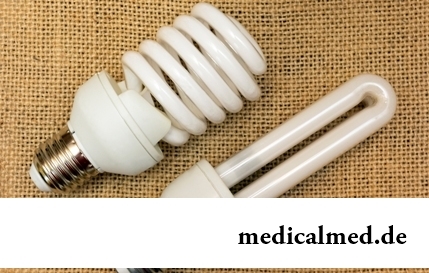
Energy saving lamps are one of the most popular products of innovative technologies, and there is no wonder: they much эк...
Section: Articles about health
The next flu epidemic leads to the next panic, from year to year we give in on these manipulations: professionally alarming voice of the announcer in news, reports with calculation of the died patients, an interview with people in white dressing gowns and advertizing of anti-influenza means ра...
Section: Articles about health
Striya (extension) are the defects of skin having an appearance of direct or wavy strips from 1 to 10 cm long and 1-5 mm wide. In most cases at women of a striya are located on a stomach, hips, a breast or buttocks. At athletes they can appear on shoulders and the internal surface of forearms. At initial stages of development of an extension have red or lilac color, but over time their coloring turns pale, and strips become whitish, getting a nacreous shade....
Section: Articles about health
To look healthy and means well-groomed not only to be pleasant to people around, but also to feel strong, sure and taken place. To Spa...
Section: Articles about health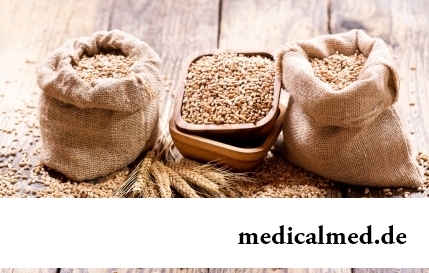
The concept "gluten" (differently, a gluten) combines group of the proteins which are a part of rye, barley and wheat. For most of people the use of the food stuffs containing a gluten not only is safe, but also it is very useful. Nevertheless, there is a number the myth...
Section: Articles about health
Iodine - one of thirty most important microelements in our organism. The main role of iodine consists in synthesis of thyroid hormones of a thyroid gland - the substances which are responsible for the majority of exchange processes of an organism. It is known that thyroid hormones consist of iodine more than for 65%. The lack of iodine leads to decrease in production of hormones and, as a result, development of a hypothyroidism. The long condition of deficit can become a source of problems of the cardiovascular, bone, digestive SI...
Section: Articles about health
All are familiar with cold, and practically everyone believes that he has sufficient knowledge and experience that correctly to treat it. N...
Section: Articles about health
Eyes – one of the most vulnerable areas on a face therefore age changes concern them first of all. Whether it is possible to keep look youth for many years and what procedures are offered for achievement of this purpose by cosmetologists? And maybe, only thing of a vari...
Section: Articles about health
For many spouses the question of planning of a family is one of the main. The problem of the choice of effective and safe contraceptives at the same time comes out on top. Russians still not often resort to operation of a vasectomy extremely popular in the USA, and also in some European and Asian countries. The reason is simple: most of men simply do not possess the complete information about specifics and effects of this procedure. Let's try to meet this lack and to acquaint readers about those...
Section: Articles about health
The kid who was recently born is surrounded with love of adult family members and their cares without which the baby cannot exist....
Section: Articles about health
There is a lot of fans of beer in our country. Statistically, on each average Russian (including women and children) in a year about 60 liters of this drink are consumed. It is not a lot of, as in the Czech Republic or Germany, but figure all the same impressive. Radova...
Section: Articles about health
Cellulitis - very widespread cosmetic shortcoming which arises approximately at 80% of women sooner or later. Emergence it is connected with change of structure of a hypodermic fatty layer. At the same time on the surface of skin at first there are roughnesses (cambers and cavities), and then small consolidations, the so-called effect of an orange-peel is shown. Changes in a condition of hypodermic cellulose are a consequence of a hormonal imbalance in an organism....
Section: Articles about health
